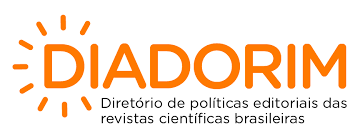THE COMPLEXITY OF UNCERTAINTY IN EDUCATION
the school of the subject seeking recognition
DOI:
https://doi.org/10.61541/m5e37d75Keywords:
Complexity. Morin. Uncertainty. Education. Inequality.Abstract
This article is the result of studies and research conducted in the discipline of Applied Methodology of Legal Research, more specifically the approach of the Morin Complexity Paradigm. As it is already applied to science, methodology, and also to education, which for Morin has always been his field of concern and research, UNESCO even asked him to systematize a set of reflections that would serve as a starting point to rethink the education of the new millennium, which is his work: The Seven Knowledges necessary for the education of the future. It will also be grafted some Brazilian thinkers like Pedro Demo with his ambivalences of knowledge and life, certainty and uncertainty, which resembles Morin in this approach. Paulo Freire more than anyone reminded us that no one teaches anyone, no one learns alone, we learn together. Also, as an example of how to do this in practice, José Pacheco with his Ponte School. Finally, remembered by Alain Touraine who needs a school of the subject to continue the search and struggle for recognition that encourages us Axel Honneth.
References
ARROYO, Miguel G. Outros Sujeitos, Outras Pedagogias. Petrópolis: Vozes, 2012
BOURDIEU, Pierre. Escritos de educação. Petrópolis: Vozes, 1998
DEMO, Pedro. Certeza da incerteza: ambivalências do conhecimento e da vida. Brasília: Plano, 2000.
______. Pobreza Política. Campinas: Autores Associados, 1996.
FREIRE, Paulo. Pedagogia da Autonomia. São Paulo: Paz e Terra, 2004.
______. Pedagogia da indignação: cartas pedagógicas e outros escritos. São Paulo: Editora UNESP, 2000.
______. Pedagogia do Oprimido. São Paulo: Paz e Terra, 1979.
FUHRMANN, Nadia. Luta por reconhecimento: reflexões sobre a teoria de Axel Honneth e as origens dos conflitos sociais. Barbaroi, Santa Cruz do Sul , n. 38, p. 79-96, jun. 2013 .
HAN, Byung-Chull. Psicopolítica, o neoliberalismo e as novas técnicas de poder. Belo Horizonte: Editora Ayiné, 2018.
HONNETH, Axel. Luta por Reconhecimento. A gramática moral dos conflitos sociais. 2. ed. São Paulo: 34, 2009.
MORIN, Edgar. O Método 1: A natureza da natureza. Porto Alegre: Sulina, 2016
______. Os Sete Saberes necessários à Educação do Futuro. São Paulo: Cortez, 2003
______. A beira do abismo. Instituto Humanitas Unisinos. São Leopoldo, março 2022. Disponível em: https://www.ihu.unisinos.br/78-noticias/616867-a-beira-do-abismo-artigo-de-edgar-morin. Acesso em: 03 Out. 2023
OXFAM. Relatório anual 2022, A desigualdade mata. Reino Unido, 2022.
PACHECO, José. A Escola da Ponte. Petrópolis: Vozes, 2011.
SANTOS, Boaventura de Souza. Poderá o Direito ser emancipatório? Revista Crítica de Ciências Sociais. Coimbra, v. 65, p. 3-76, maio 2003.
SCHULTZ, Adilson. Poderemos viver juntos? A educação de sujeitos como programa para superar a crise espiritual do nosso tempo. Revista Tecer - Belo Horizonte – vol. 3, nº 5, p. 121-122, nov. 2010
TOURAINE, Alain. Crítica da modernidade. 7.ed. Petrópolis: Vozes, 2002.
______. Poderemos viver juntos? Petrópolis: Vozes, 1998.
Downloads
Published
Issue
Section
License
Copyright (c) 2023 Revista de Direito - Trabalho, Sociedade e Cidadania

This work is licensed under a Creative Commons Attribution-NonCommercial-NoDerivatives 4.0 International License.
Todos os trabalhos que forem aceitos para publicação, após o devido processo avaliativo, serão publicados sob uma licença Creative Commons, na modalidade Attribution-NonCommercial-NoDerivatives 4.0 International Public License (CC BY-NC-ND 4.0). Esta licença permite que qualquer pessoa copie e distribua a obra total e derivadas criadas a partir dela, desde que seja dado crédito (atribuição) ao autor / à autora / aos autores / às autoras.
Deprecated: json_decode(): Passing null to parameter #1 ($json) of type string is deprecated in /var/www/html/revista/plugins/generic/citations/CitationsPlugin.php on line 68








